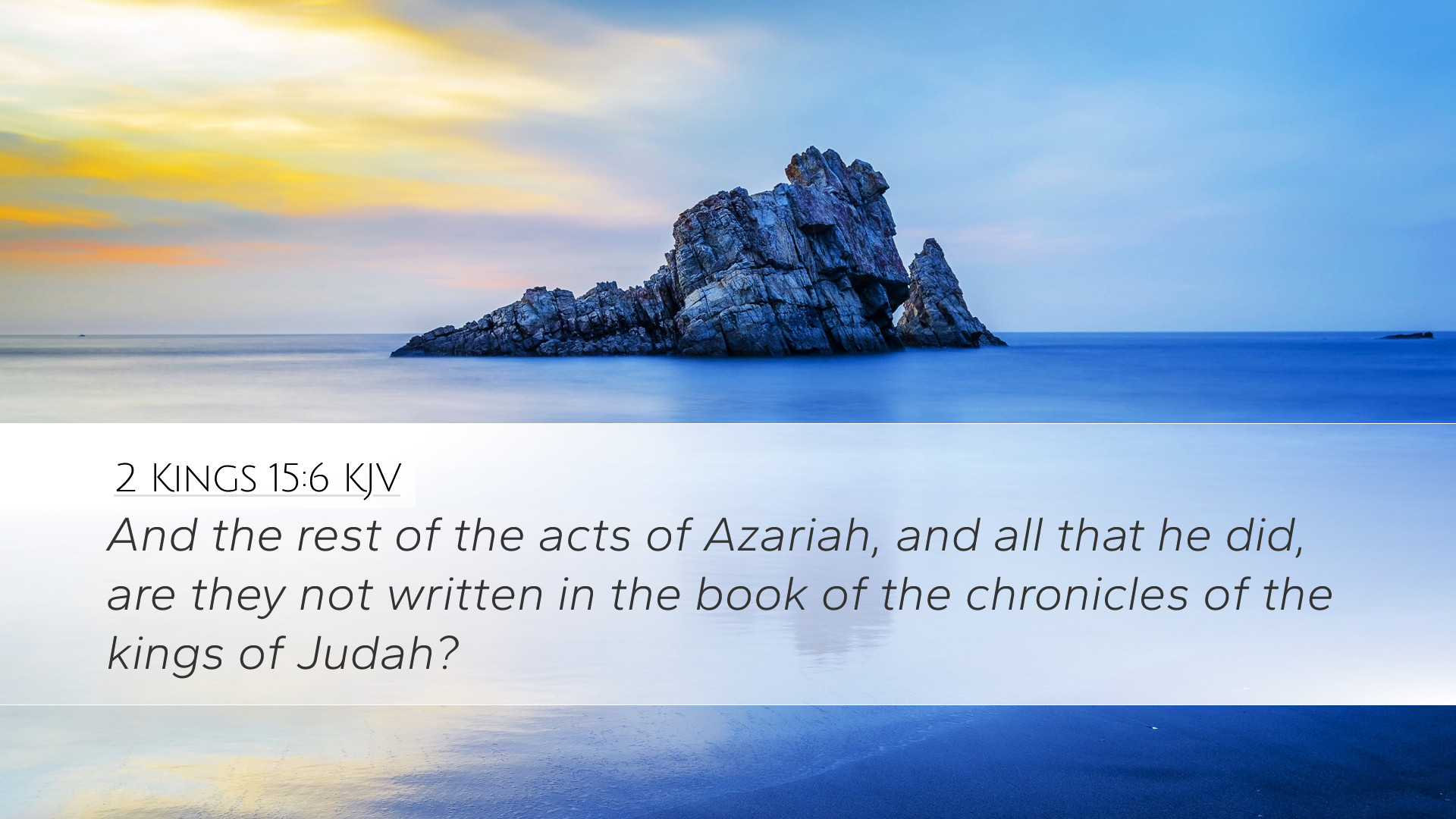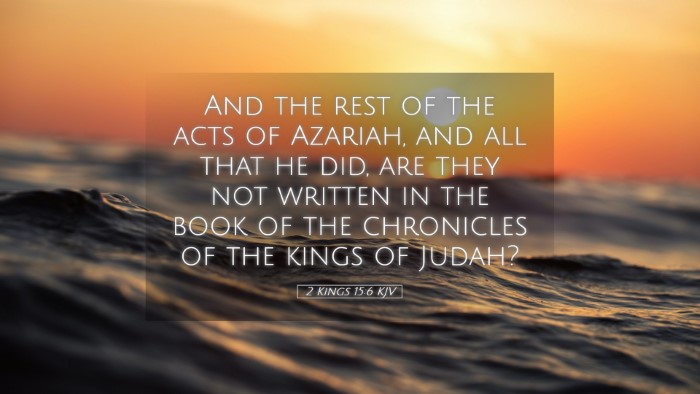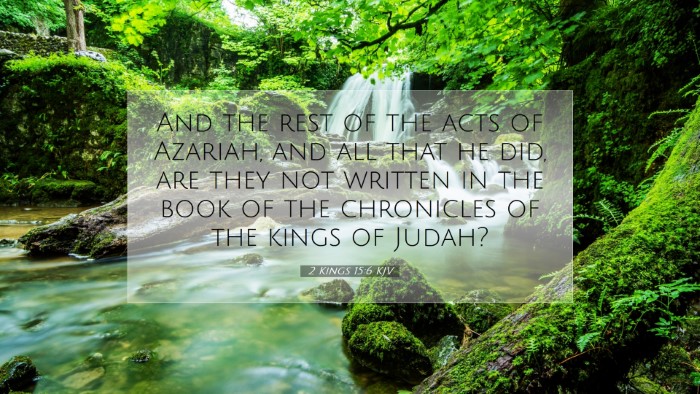Commentary on 2 Kings 15:6
Verse Text: "And the rest of the acts of Azariah, and all that he did, are they not written in the book of the chronicles of the kings of Israel?" (2 Kings 15:6)
Overview
This verse serves as a summary of King Azariah's reign over Judah, emphasizing the continuity of historical records concerning the kings of Israel and Judah. It highlights the practice of documenting the deeds of kings, indicating that there is more to his story than what is captured in this particular narrative. This commentary synthesizes insights from various public domain sources, providing depth and clarity for scholars, pastors, and students of the Scriptures.
Historical Context
The historical backdrop of 2 Kings during Azariah's reign is marked by political turmoil and moral decline in both the northern kingdom of Israel and the southern kingdom of Judah. Azariah (also known as Uzziah) ascended to the throne at a young age and ruled for fifty-two years, which makes him one of the longer-reigning monarchs in the history of Judah.
Insights from Commentaries
Matthew Henry's Commentary
Henry emphasizes the importance of recording the deeds of kings, suggesting that this verse points to the comprehensive historical accounts available in the "Book of the Chronicles of the Kings of Israel." He notes that these chronicles were intended to provide a fuller understanding of the kings' actions and their impact on both Israel and Judah. Henry posits that while Azariah had a notable reign, the mention of his deeds in the chronicles serves as a reminder of the larger divine narrative at play.
Albert Barnes' Notes on the Bible
Barnes focuses on the significance of the phrase "the rest of the acts" as an indicator that Azariah's achievements—or failures—extend beyond what is noted in 2 Kings. He comments on how this brevity reflects an editorial choice to highlight specific aspects of his reign rather than exhaustively catalog all events. Barnes draws attention to the spiritual implications of this royal summary, noting that God's evaluation of a ruler's reign is often concerned with faithfulness and adherence to divine standards rather than mere political success.
Adam Clarke's Commentary
Clarke brings a critical eye to the nature of royal documentation, suggesting that the accounts in the chronicles were significant for both historical preservation and theological reflection. He discusses how the phrase articulates the understanding that human records can only capture part of the divine story, and true understanding comes from aligning these historical narratives with God’s overarching purpose. Clarke warns readers to consider whether the acts recorded are reflective of righteousness or corruption and how these choices led to the eventual downfall or prosperity of the nation.
Thematic Reflections
- The Nature of Historical Records: The verse introduces the broader theme of historical documentation and its importance in understanding the character of leadership in Israel and Judah. This imparts lessons about the value of remembering and studying history for spiritual and moral lessons.
- Divine Evaluation of Leadership: The references to divine judgment behind historical events serve as a reminder for current leaders and believers on the weight of their actions and decisions in relation to God's will.
- Continuity of God's Plan: Azariah's mention in the chronicles points towards the continuity in God's plan for His people, emphasizing that while rulers may come and go, God's purposes endure.
Application for Today's Believers
As we reflect on Azariah's reign, we are invited to evaluate our leadership—as individuals, communities, and churches—against the standard of faithfulness to God. This verse encourages contemporary believers to document their spiritual journeys and the deeds of faith within their communities, enabling future generations to learn and grow from past experiences.
Conclusion
2 Kings 15:6 serves as a poignant reminder of the complexity of leadership and the enduring legacy of actions taken by those in authority. By integrating insights from classic commentaries, we can glean profound truths about the divine oversight of history, the significance of faithful leadership, and the importance of remembrance in the journey of faith. The documentation of Azariah's life in the chronicles challenges modern readers to examine their own contributions to the ongoing narratives of God's kingdom.


